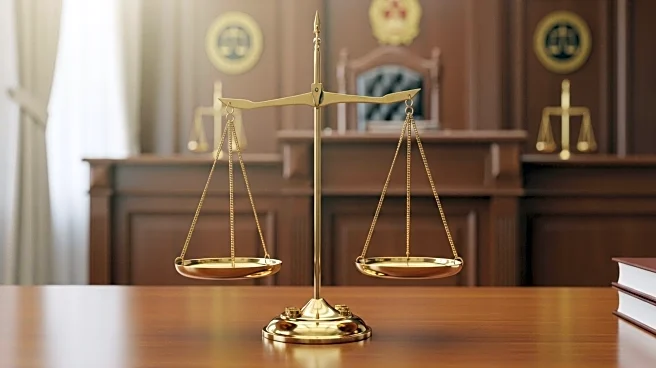What's Happening?
Federal judges in Maryland and Tennessee are reviewing legal challenges related to Kilmar Abrego Garcia's deportation and subsequent legal issues. Abrego Garcia was mistakenly deported to El Salvador, which sparked opposition to President Trump's immigration policies. In Maryland, Abrego Garcia is contesting efforts to deport him to Eswatini, following a government admission that a previous order prevents his deportation to El Salvador. U.S. District Judge Paula Xinis has mandated government officials to testify about their actions regarding his deportation. Concurrently, in Tennessee, Abrego Garcia faces human smuggling charges stemming from a 2022 traffic stop. His attorneys argue these charges are retaliatory, following his successful lawsuit against the Trump administration over his deportation. The Tennessee judge is assessing whether the prosecution is illegal retaliation, with a hearing set to determine the scope of discovery for Abrego Garcia's defense.
Why It's Important?
The legal proceedings surrounding Kilmar Abrego Garcia highlight significant issues within U.S. immigration policy and enforcement practices. The case underscores potential misuse of the immigration system for punitive measures, raising concerns about legal fairness and due process. The outcome of these challenges could impact future deportation practices and the legal rights of immigrants facing similar situations. Additionally, the case reflects broader tensions between immigration enforcement and civil rights, potentially influencing public opinion and policy reform. Stakeholders such as immigrant advocacy groups, legal experts, and policymakers are closely monitoring the developments, as they may set precedents for handling mistaken deportations and retaliatory legal actions.
What's Next?
The hearings in Maryland and Tennessee will determine the next steps in Abrego Garcia's legal battles. In Maryland, the focus will be on the government's plans for deportation and the legal basis for such actions. In Tennessee, the judge's decision on the smuggling charges could influence the trajectory of the case, potentially leading to further legal challenges or appeals. The outcomes may prompt reactions from immigration advocacy groups and could influence legislative discussions on immigration policy. The case may also lead to increased scrutiny of deportation practices and the legal treatment of immigrants, potentially driving policy changes or reforms.
Beyond the Headlines
The Abrego Garcia case raises ethical questions about the treatment of immigrants within the U.S. legal system. It highlights the potential for systemic issues in immigration enforcement, including the risk of wrongful deportations and retaliatory legal actions. The case may prompt discussions on the balance between national security and individual rights, as well as the role of public perception in shaping immigration policy. Long-term implications could include shifts in legal standards for deportation and increased advocacy for immigrant rights, potentially influencing cultural attitudes towards immigration.








